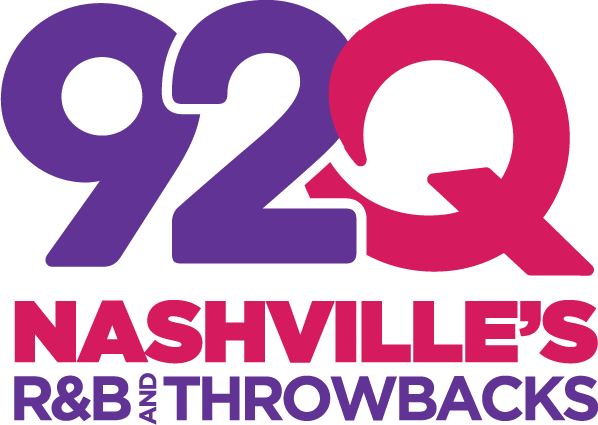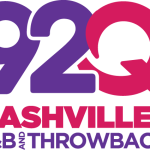 A much needed conversation has been brewing in Music City during Black History Month. Recently, Nashville Public Library officials notified the Nashville Chapter of the Black Lives Matter movement on Wednesday, February 19, that they received complaints regarding the group’s policy on general body meetings. Ironically, all cancelled dates were in February during Black History Month. This news comes on the cusp of the 56th anniversary of the Nashville sit-ins.
A much needed conversation has been brewing in Music City during Black History Month. Recently, Nashville Public Library officials notified the Nashville Chapter of the Black Lives Matter movement on Wednesday, February 19, that they received complaints regarding the group’s policy on general body meetings. Ironically, all cancelled dates were in February during Black History Month. This news comes on the cusp of the 56th anniversary of the Nashville sit-ins.
The Nashville sit-ins lasted from February 13 to May 10, 1960 as a part of a nonviolent direct action campaign to end racial segregation at lunch counters in downtown Nashville, Tennessee. The sit-in campaign was coordinated by the Nashville Student Movement and Nashville Christian Leadership Council. Sit-ins were staged at numerous stores in Nashville’s central business district. Sit-in participants, who consisted mainly of black college students including Fisk University, Tennessee State University, and Meharry Medical College, were often verbally or physically attacked by white onlookers. Despite their refusal to retaliate, over 150 students were eventually arrested for refusing to vacate store lunch counters when ordered to do so by police. At trial, the students were represented by a group of 13 lawyers, headed by Z. Alexander Looby, whom a Nashville Public Library is named after.
The Black Lives Matter movement stems from a long history of civil rights movements that has challenged the deep seeded anger of racial violence against blacks and various other systematic issues experienced by African-Americans, while calling forth activism among millennials. While the movement’s mission has many tentacles it is often misunderstood by the public. The Black Lives matter movement orients from social and political movements that bring self-determination and cultural awakening along with activism to the black community. The group doesn’t completely reject tactics and goals of integration, but has used an ideal of focus in favor of the millennial ideal of black identity, speaking out against injustice and police brutality, reinstating a sense of a strong black community.
In the words of Peniel Joseph, “Every generation does it differently; shaped by the time they are in.”
The Nashville Black Lives Matter chapter’s policy since its inception over a year ago has been “open to black and persons of color (minorities) only”. This policy is unique due to the fact that the organization’s national policy has been black only in respect to general body meetings. The Nashville chapter decided to provide a more inclusive stance due to Nashville’s diverse population of minorities.
The Nashville Black Lives Matter chapter has been meeting at the North Branch Library since November, however library staff expressed that they had been unaware of the chapters meeting policy until a library customer who viewed advertising for the group’s Saturday meeting expressed their feelings of exclusion from the general body meeting.
The Nashville Public Library system does not allow meetings restricting attendance by race on public property. The library’s policy states that “all meetings at their facilities must be open to the public and news media.” While the library allows established local, non-profit organizations of a public, civic, educational, or cultural nature and government agencies to hold meetings in their buildings, the library reserves the right to limit use where the demands for meeting space so require. The Nashville Public Library Meeting Rooms Policy states that, “The Library Board remains the final authority regarding use of library facilities. The Library reserves the right to withdraw permission for meeting room use when conditions warrant such action.” The Nashville Public Library system has been committed to civil rights and has a department devoted to the topic for many years.
Since the announcement on local and national media, the Nashville Chapter of BLM’s Facebook comments have exploded as a soundboard of opinions about this issue. The group maintains their stance of attendance for general body meetings, but is welcoming the ideas of providing time and space to host difficult conversations amongst persons of color and white allies alike.
The group decided to move less than a mile away to Dixon Memorial United Methodist Church to host meetings until a permanent meeting place is established. Joshua Crutchfield, an organizer of the Nashville BLM chapter, states that “The Nashville BLM movement understands the library’s policy and doesn’t disagree with it as it has been portrayed by many media outlets.” However, the group desires a space where the group can continue to work to build a sense of community and healing integral to the black experience in Nashville, particularly to those who have experienced racialized violence and ardently maintain this policy imperative to the work and mission of BLM. The group’s website states, “We understand and even honor the importance of the library as an invaluable site of accessible information, community events, and safe space, often especially for disenfranchised people without homes and people of color, but if it cannot or will not support our values we will continue to meet elsewhere.”
Nashville Chapter of BLM’s reasoning for their “persons of color only policy” was established to center the voices and experiences of people of color that have historically been excluded or segregated within supposedly public spaces. The chapter believes that “Black and/or people of color only spaces are often questioned and viewed with suspicion, though there is seldom any interrogation of white-only board rooms and staffs” as stated on their website in response to the breaking news.
The Nashville BLM chapter works to aid in the struggle seeking to change laws and policies along with hearts and minds of those in Nashville. The group has many white ally groups that work parallel to their efforts, such as Showing Up Racial Justice, a white group who works to deconstruct white privilege and showcase how it impacts the lives of blacks supports BLM meeting policies. Crutchfield stated, “The Nashville BLM chapter truly appreciates the white ally groups that they have built relationships with over the course of the movement’s development and asks for more groups to work with them.” The group is currently reorienting themselves and wants to embark on outreach within the black community of Nashville.
While the public may lack information, understanding or simply chose to remain ignorant of the Black Lives Matter movement, I implore all of our readers and listeners to educate yourselves, formulate opinions, and engage in the conversation taking place in our country. I ask you to be willing to provide positive and proactive solutions to the problems that are affecting our community.
Nashville BLM chapter hopes to start having conversations with the Nashville community and begin canvassing and campaigning to help bring awareness and action in response to issues posed by the black community. The Nashville BLM chapter hosts events like Ban the Box, Justice for Jefferson, Day of Action for Women and Girls, BLM protests, and a host of community forums, marches, and die-ins.
The group wants to know, “What do you want to see changed in Nashville’s Black community? How does it affect your lives? And Are you willing to come out and help the movement?” The Nashville Black Lives Matter Movement meets generally every second and fourth Saturday monthly.
Please contact the Nashville Black Lives Matter chapter for more information and to add to the conversation.
Facebook:https://www.facebook.com/BlackLivesMatterNashville
Twitter: https://www.twitter.com/BlackLivesMatterNashville
Email:[email protected]
Written by: Sharita Henderson








